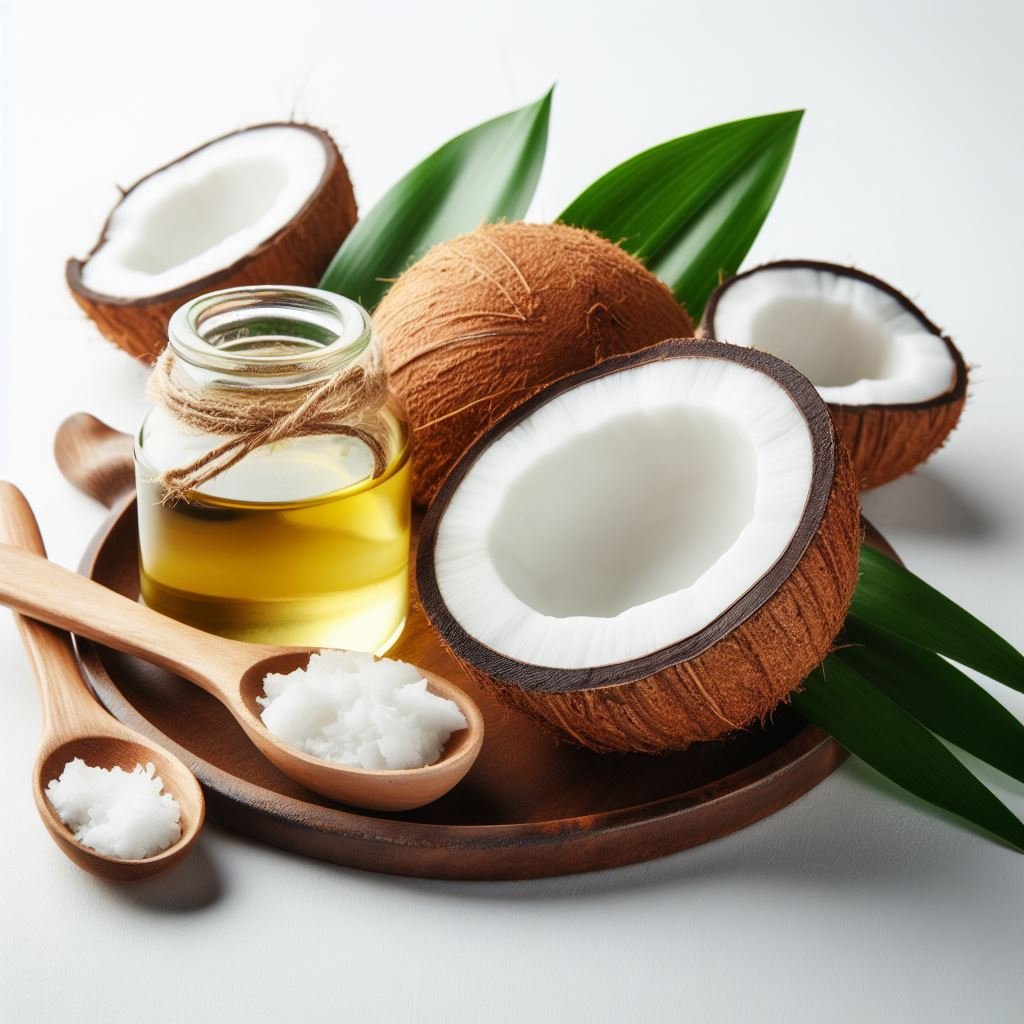Coconut, the fruit of a palm tree species within the Arecaceae family, is a tropical fruit known for its high fiber content and nutritive value. While it thrives in tropical climates, coconut is a beloved fruit worldwide and is readily available. You can use it in various forms, like grating it for desserts and cake decorations, incorporating it as coconut milk in vegan diets and dessert preparation, or enjoying it as a natural fruit.
Furthermore, while coconut has long been a component of cosmetic products, pure coconut oil has gained popularity as a standalone beauty product. Due to its positive effects on hair, nails, and skin, coconut oil is a preferred choice for personal care, either on its own or in combination with other ingredients. Additionally, it is suitable for use in desserts and various dishes. With its pleasant aroma, it enhances the flavor and fragrance of dishes, especially when used in dairy desserts. Here is everything you need to know about coconut oil and its benefits.
What is Coconut Oil?
Coconut oil is one of the plant-based products that has seen a significant increase in popularity, especially in the past five years. You can find jars of coconut oil in both supermarkets and cosmetic stores. Moreover, when you check the ingredients of packaged food and snacks, you’ll notice that some of them contain coconut. Particularly in cereal bars and sweet snacks with coconut flavor, the presence of coconut oil is quite likely. Although natural coconut oil is commonly produced in factory conditions from coconuts using specialized equipment, you can easily make it at home. By drying coconut pieces, separated from their shells, in the sun or in a low-temperature oven, and then processing them through a solid fruit juicer, you can obtain natural coconut oil. One of the primary reasons for the recent surge in coconut’s popularity is its health benefits.
Significant amounts of vitamins, minerals, and beneficial plant compounds are present in coconut oil. Additionally, coconut, as a fruit, provides essential fiber. Due to these properties, coconut oil is a common ingredient in the formulations of shampoos, hair conditioners, body lotions, and moisturizing cosmetic products. Moreover, because of its beneficial effects on the body, you can topically apply coconut oil on the skin, hair, and nails, and incorporate it as an ingredient in food.
Content:
While many fruit types are high in carbohydrates, coconut primarily consists of fat. This makes it a favorable fruit for obtaining oil. Moreover, it serves as a good source of B-group vitamins and several mineral types. One cup (100 grams) of raw coconut contains 354 calories, while the same amount of dried coconut contains 650 calories. In 100 grams of raw coconut, you can find 3 grams of protein, 15 grams of carbohydrates, 9 grams of fiber, and 75% of your daily manganese requirement.
Additionally, it contains significant amounts of minerals like magnesium, copper, selenium, and phosphorus. Most of the fat in coconut consists of medium-chain fatty acids. Medium-chain fatty acids, saturated fats from plant sources, get absorbed and utilized for energy more rapidly. This occurs at a faster rate than long-chain fatty acids. Several studies suggest that adding coconut oil to your diet may aid weight loss, particularly for those with obesity, compared to other fats. This is attributed to its specific characteristics.











Reviews
There are no reviews yet.